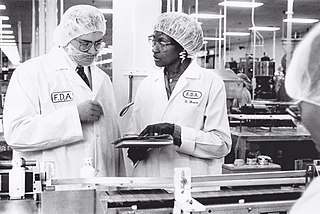A quality management system (QMS) is a collection of business processes focused on consistently meeting customer requirements and enhancing their satisfaction. It is aligned with an organization's purpose and strategic direction. It is expressed as the organizational goals and aspirations, policies, processes, documented information, and resources needed to implement and maintain it. Early quality management systems emphasized predictable outcomes of an industrial product production line, using simple statistics and random sampling. By the 20th century, labor inputs were typically the most costly inputs in most industrialized societies, so focus shifted to team cooperation and dynamics, especially the early signaling of problems via a continual improvement cycle. In the 21st century, QMS has tended to converge with sustainability and transparency initiatives, as both investor and customer satisfaction and perceived quality are increasingly tied to these factors. Of QMS regimes, the ISO 9000 family of standards is probably the most widely implemented worldwide – the ISO 19011 audit regime applies to both and deals with quality and sustainability and their integration.

The pharmaceutical industry is a medical industry that discovers, develops, produces and markets pharmaceutical goods for use as drugs that are then administered to patients. These medications are created and put on the market for the curing or prevention of disease, as well as alleviating symptoms of illness or injury.

Current good manufacturing practices (cGMP) are those conforming to the guidelines recommended by relevant agencies. Those agencies control the authorization and licensing of the manufacture and sale of food and beverages, cosmetics, pharmaceutical products, dietary supplements, and medical devices. These guidelines provide minimum requirements that a manufacturer must meet to assure that their products are consistently high in quality, from batch to batch, for their intended use.
Nutraceutical is a marketing term used to imply a pharmaceutical effect from a compound or food product that has not been scientifically confirmed or approved to have clinical benefits. In the United States, nutraceuticals are considered and regulated as a subset of foods by the Food and Drug Administration (FDA).
An approved drug is a medicinal preparation that has been validated for a therapeutic use by a ruling authority of a government. This process is usually specific by country, unless specified otherwise.
The pharmaceutical industry is one of the leading industries in the People's Republic of China, covering synthetic chemicals and drugs, prepared Chinese medicines, medical devices, apparatus and instruments, hygiene materials, packing materials, and pharmaceutical machinery. China has the second-largest pharmaceutical market in the world as of 2017 which is worth US$110 billion. China accounts for 20% of the world's population but only a small fraction of the global drug market. China's changing health-care environment is designed to extend basic health insurance to a larger portion of the population and give individuals greater access to products and services. Following the period of change, the pharmaceutical industry is expected to continue its expansion.
Iduronidase, sold as Aldurazyme, is an enzyme with the systematic name glycosaminoglycan α-L-iduronohydrolase. It catalyses the hydrolysis of unsulfated α-L-iduronosidic linkages in dermatan sulfate.

In the field of pharmacy, compounding is preparation of custom medications to fit unique needs of patients that cannot be met with mass-produced products. This may be done, for example, to provide medication in a form easier for a given patient to ingest, or to avoid a non-active ingredient a patient is allergic to, or to provide an exact dose that isn't otherwise available. This kind of patient-specific compounding, according to a prescriber's specifications, is referred to as "traditional" compounding. The nature of patient need for such customization can range from absolute necessity to individual optimality to even preference.

Wolfe Laboratories, Inc. (WLI) was a contract research organization (CRO) headquartered in Woburn, Massachusetts. It provided research and development services as well as GLP analytical services for products in late discovery phase through early clinical phases of drug development. It served clients in New England, the US and internationally. Laboratory operations took place in a large 21,000-square-foot (2,000 m2) facility.
Clinical quality management systems (CQMS) are systems used in the life sciences sector designed to manage quality management best practices throughout clinical research and clinical study management. A CQMS system is designed to manage all of the documents, activities, tasks, processes, quality events, relationships, audits and training that must be administered and controlled throughout the life of a clinical trial. The premise of a CQMS is to bring together the activities led by two sectors of clinical research, Clinical Quality and Clinical Operations, to facilitate cross-functional activities to improve efficiencies and transparency and to encourage the use of risk mitigation and risk management practices at the clinical study level.
A contract manufacturing organization (CMO), more recently referred to as a contract development and manufacturing organization (CDMO) to avoid the acronym confusion of Chief Medical Officer or Clinical Monitoring Organization in the pharma industry, is a company that serves other companies in the pharmaceutical industry on a contract basis to provide comprehensive services from drug development through drug manufacturing. This allows major pharmaceutical companies to outsource those aspects of the business, which can help with scalability or can allow the major company to focus on drug discovery and drug marketing instead.
Pharmacosmos is a pharmaceutical company specialized in treatment of iron deficiency anemia.

JN-International Medical Corporation (JNIMC) is a U.S.-based biopharmaceutical corporation which since 1998 has been focused on developing vaccines and diagnostics for infectious disease for developing countries. This private corporation was founded in 1998 by Dr. Jeeri R. Reddy with the help of Dr. Kelly F. Lechtenberg in a small rural town, Oakland, Nebraska. From there it grew and expanded until in the year 2000 the corporation moved to Omaha, Nebraska.

Intas Pharmaceuticals Limited is an Indian multinational pharmaceutical company headquartered in Ahmedabad. It is a producer of generic therapeutic drugs and engaged in contract clinical research and manufacturing. It has 22 manufacturing plants, 17 in India and the rest in Greece, United Kingdom and Mexico. In the financial year 2019, 69% of the company's revenue came from international markets while 31% came from India. Its market presence is in more than 100+ countries.
Pharmaceutical fraud is when pharmaceutical companies engage in illegal, fraudulent activities to the detriment of patients and/or insurers. Examples include counterfeit drugs that do not contain the active ingredient, false claims in packaging and marketing, suppression of negative information regarding the efficacy or safety of the drug, and violating pricing regulations.

A New England Compounding Center meningitis outbreak that began in September 2012 sickened 798 individuals and resulted in the deaths of more than 100 people. In September 2012, the Centers for Disease Control and Prevention, in collaboration with state and local health departments and the Food and Drug Administration (FDA), began investigating a multistate outbreak of fungal meningitis and other infections among patients who had received contaminated steroid injections from the New England Compounding Center (NECC) in Framingham, Massachusetts. The NECC was classified as a compounding pharmacy. The traditional role of compounding pharmacies is to make drugs prescribed by doctors for specific patients with needs that can't be met by commercially available drugs.
Curia is a contract research and manufacturing organization that provides drug discovery, development, cGMP manufacturing and aseptic fill and finish to the pharmaceutical and biotechnology industries. Founded in 1991, Curia operates in the United States, Europe and Asia, with its headquarters located in Albany, New York. Curia has announced deals and collaborations with such companies as Pfizer Inc., Merck & Co., Eli Lilly and Company, Takeda, Genentech, Bristol-Myers Squibb Co. and GE.

The Drug Quality and Security Act is a law that amended the Federal Food, Drug, and Cosmetic Act to grant the Food and Drug Administration more authority to regulate and monitor the manufacturing of compounded drugs. The bill was written in response to the New England Compounding Center meningitis outbreak that took place in 2012, which killed 64 people. The bill was signed by President Obama on November 27, 2013.
Harrow Health, Inc., formerly known as Imprimis Pharmaceuticals, is a publicly traded pharmaceutical company based in Nashville, Tennessee.

Arven Pharmaceuticals is a Turkish pharmaceutical corporation headquartered in Istanbul established as a subsidiary of Toksöz Group in 2013. Arven's primary focus is development and production of high-technology inhaler and biotechnology products. The company is specialized on difficult to make products. Arven is the first Turkish company developing biosimilars for global markets, including the US and EU.









